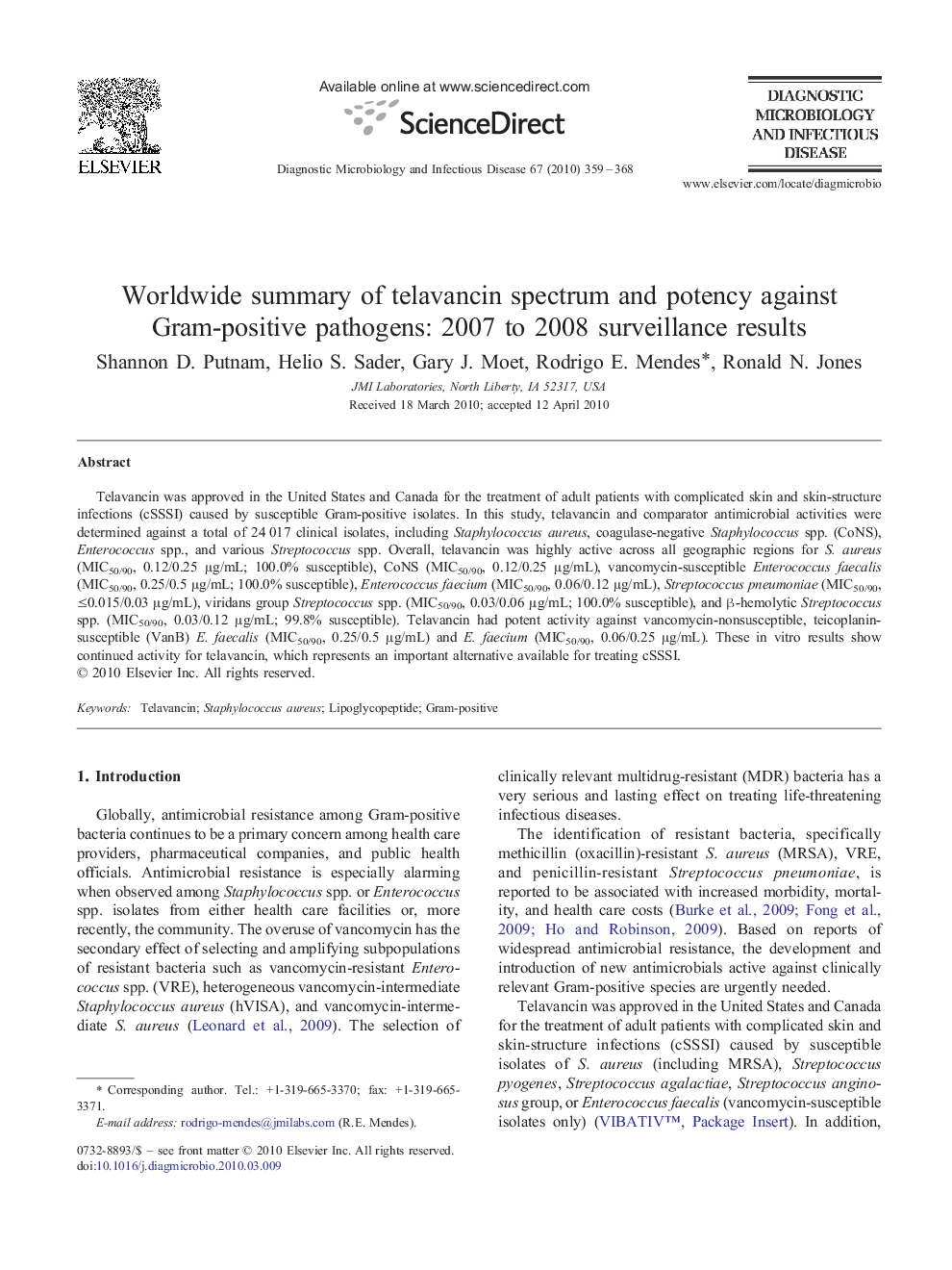| Article ID | Journal | Published Year | Pages | File Type |
|---|---|---|---|---|
| 3347988 | Diagnostic Microbiology and Infectious Disease | 2010 | 10 Pages |
Telavancin was approved in the United States and Canada for the treatment of adult patients with complicated skin and skin-structure infections (cSSSI) caused by susceptible Gram-positive isolates. In this study, telavancin and comparator antimicrobial activities were determined against a total of 24 017 clinical isolates, including Staphylococcus aureus, coagulase-negative Staphylococcus spp. (CoNS), Enterococcus spp., and various Streptococcus spp. Overall, telavancin was highly active across all geographic regions for S. aureus (MIC50/90, 0.12/0.25 μg/mL; 100.0% susceptible), CoNS (MIC50/90, 0.12/0.25 μg/mL), vancomycin-susceptible Enterococcus faecalis (MIC50/90, 0.25/0.5 μg/mL; 100.0% susceptible), Enterococcus faecium (MIC50/90, 0.06/0.12 μg/mL), Streptococcus pneumoniae (MIC50/90, ≤0.015/0.03 μg/mL), viridans group Streptococcus spp. (MIC50/90, 0.03/0.06 μg/mL; 100.0% susceptible), and β-hemolytic Streptococcus spp. (MIC50/90, 0.03/0.12 μg/mL; 99.8% susceptible). Telavancin had potent activity against vancomycin-nonsusceptible, teicoplanin-susceptible (VanB) E. faecalis (MIC50/90, 0.25/0.5 μg/mL) and E. faecium (MIC50/90, 0.06/0.25 μg/mL). These in vitro results show continued activity for telavancin, which represents an important alternative available for treating cSSSI.
